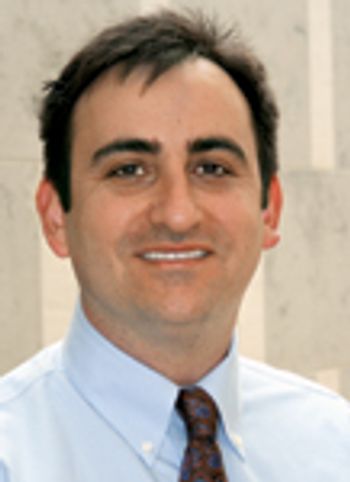
I have had the tremendous good fortune of strong leadership throughout my career.

1 June 2009

I joined Merck in 1996 as a customer account representative, processing pharmaceutical and vaccine orders for our direct customers.

Prior to joining Exelixis, I was an investment banker at Goldman Sachs, focusing on M&A and corporate finance.

It's hard to believe that Michelle Dipp has been in the industry for only five years considering her significant impact thus far on it.

FDA slaps down Cheerios and forces pharma companies that use Google to make technical changes no consumer will ever notice. Big whoop.

I've always loved the life sciences, and have been fortunate to have my career take place during a time of profound advances in biology.

Even in our crowd of underage overachievers, Luca Santarelli, MD, PhD, is a standout.

There is increasing importance of differentiation in the pharmaceutical industry, especially given the political, regulatory, and financial challenges we face.

People define "work" differently. For some, it's making useful objects that you can see and touch.

The Primary Care Business Unit at Pfizer has taken some major steps to respond to the needs of our customers.

I started out as a cardiovascular primary care sales rep with Merck in the UK.

At 22, Stephanie Bova left the United States to teach English in Japan.

I trained as a journalist and worked at news organizations where all the reporters wanted to cover politics and crime.

In 1993, my father died of lung cancer in India. During the years I watched him suffer with the disease, I decided that I would join pharmaceutical industry after my PhD to develop drugs (particularly aimed at treating cancer) and help improve the lives of patients.

28 May 2009


1 June 2009

Cancer Research Technology, a British cancer charity, is to fund clinical trials of a drug owned by GlaxoSmithKline (GSK), in a groundbreaking programme to develop promising experimental medicines that are neglected due to limited corporate funding.

21 May 2009

Neil Darwent and Roger Cooper of GSK Biologicals talk to Pharm Exec Europe about the company's new, state-of-the-art approach to clinical trials in Africa.

US pharma CEO salaries are still dwarfing the earnings of their European counterparts, but, with the industry and the economy currently in crisis, Jacky Law asks how long this can continue.

You know those loud soundtracks and distracting visuals during the safety information in your TV ads? Critics have been complaining about them, and new draft guidance from FDA is calling them a "no-no."

Marketers fear a Catch-22 if they have to write research summaries that FDA considers illegal promotion.

Defining, evaluating, and utilizing the Target Product Profile.

As it readies submission for a once-weekly diabetes injectable, Amylin announces that it will trim 35 percent of its sales force and put focus on specialty physicians.

Interstitial Page

New prescriptions for antiviral treatments get huge boost due to H1N1 epidemic. Numbers exceed those seen during this year's influenza season, and the numbers are climbing.

As the US government weighs its options on whether to commission a vaccine for the new H1N1 strain of influenza, pharma companies gear up for a possible epidemic.